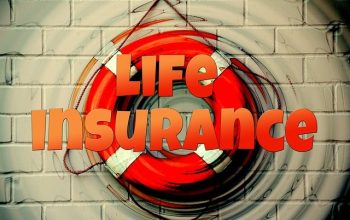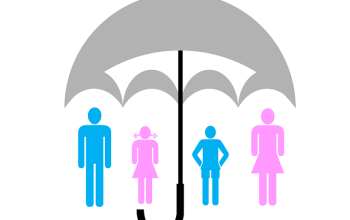businesses with employees and those offering products or professional services need a comprehensive General Liability Insurance to safeguard against third-party claims such as bodily injury, property damage, and personal and advertising injuries. Professional Liability Insurance (Errors & Omissions insurance) is essential for professionals to protect against allegations of incompetence or misconduct. Public Liability Insurance ensures protection for businesses when their activities or products cause harm to the public, while Product Liability Insurance specifically addresses claims arising from product defects or malfunctions. For small businesses, Small Business Insurance often encompasses a combination of these coverages, offering a broad shield against various liability risks. Commercial Liability Insurance is also available, providing an all-encompassing solution that can be tailored to address the unique liability exposures of each business. It's crucial for businesses to understand and secure these types of insurance to ensure they are adequately protected financially and operationally from potential legal claims.
businesses with employees must navigate the imperative of securing Employer’s Liability Insurance to mitigate financial risks associated with work-related injuries or illnesses. This critical coverage is not just a legal obligation but a cornerstone in a robust risk management strategy. It shields against the potential high costs of employee compensation and legal defense fees. Distinct from General, Professional, and Product Liability Insurance—all integral to small business insurance frameworks—Employer’s Liability Insurance is specifically tailored to protect employers from work-related claims. Understanding the distinctions between these liability coverages is vital for comprehensive protection, ensuring businesses remain financially secure amidst the complexities of their operations.
- Navigating Mandatory Employer’s Liability Insurance: A Necessity for Businesses with Staff
- Employer’s Liability vs. General and Professional Liability: Understanding the Distinctions
- The Scope of Business Liability Coverage in Work-Related Injuries and Illnesses
- Broader Liability Protections: Public, Product, and Commercial Liability Insurance for Comprehensive Risk Management
Navigating Mandatory Employer’s Liability Insurance: A Necessity for Businesses with Staff
businesses with staff must navigate the complexities of obtaining adequate liability insurance to protect against various risks associated with their operations. General Liability Insurance, which often includes provisions for Professional Liability Insurance, forms a critical layer of defense for businesses against claims arising from professional services or advice provided that lead to third-party damages or losses. This type of coverage is distinct from Business Liability Coverage, which encompasses a broader range of risks, including those not directly related to professional services. For instance, Public Liability Insurance specifically addresses the exposure that businesses face when members of the public visit their premises or use their products and services. This becomes particularly relevant for small businesses, which, despite their size, can still be held financially responsible for bodily injury, property damage, or personal and advertising injury claims.
Furthermore, Product Liability Insurance is a specialized form of Commercial Liability Insurance that safeguards against claims related to products manufactured, sold, or distributed by the company. It ensures financial security in case of product malfunctions, defects, or failure to provide adequate warnings or instructions. This coverage is indispensable, as it can protect the business from potentially crippling legal expenses and settlement costs. In the event that a product causes harm, this insurance provides the necessary support to handle the associated claims without jeopardizing the company’s financial health. It underscores the importance of considering all forms of liability coverage, including Employer’s Liability Insurance, as part of a comprehensive risk management strategy for businesses with employees. Neglecting to secure such insurance can expose a business to significant risks that could affect its long-term viability and operational continuity.
Employer’s Liability vs. General and Professional Liability: Understanding the Distinctions
Employer’s Liability Insurance and General Liability Insurance serve distinct purposes within the realm of business liability coverage, although they often overlap in their protection scope. Employer’s Liability Insurance is a specialized form of insurance that is mandatory for businesses with employees. It is designed to cover the costs associated with compensating employees who suffer work-related injuries or illnesses. This includes medical expenses, lost wages, and legal fees that may arise from such claims. It ensures that employers can fulfill their obligations without jeopardizing their financial stability.
Distinct from Employer’s Liability, General Liability Insurance, also known as Business Liability Coverage, protects businesses against third-party claims for property damage, bodily injury, and personal injury. This type of insurance is crucial for small businesses that interact with the public or use external vendors, as it covers risks not related to employment but rather to the general operations of the business. Professional Liability Insurance, another form of liability coverage, specifically addresses claims arising from professional services or advice provided by a company, which can differ from the broader scope of General Liability Insurance. Meanwhile, Public Liability Insurance and Product Liability Insurance fall under the umbrella of General Liability Insurance but address specific scenarios where a business is liable to the public for damage or injury caused by their products or services. Commercial Liability Insurance encompasses both Employer’s and General Liability Insurance, offering a comprehensive protection plan that addresses both employee-related claims and third-party liability concerns. Understanding these distinctions is vital for businesses to ensure they are adequately protected against the wide array of risks they may face.
The Scope of Business Liability Coverage in Work-Related Injuries and Illnesses
Employer’s Liability Insurance is a critical safeguard for businesses with workforce personnel. It extends coverage to employees who sustain work-related injuries or contract occupational illnesses, ensuring that employers can meet the necessary compensation and legal defense costs without undue financial burden. This insurance is tailored to address the unique risks associated with employment, providing a safety net that protects both the company and its employees. It encompasses a broad range of scenarios, including those where an employee is injured by a fellow employee or through an act of negligence by the employer.
Furthermore, beyond Employer’s Liability Insurance, businesses should consider additional liability coverage to address other potential risks. General Liability Insurance can cover third-party claims for bodily injury, property damage, and personal and advertising injury, safeguarding your business against common lawsuits. For businesses offering professional services, Professional Liability Insurance, also known as Errors & Omissions (E&O) insurance, is vital to protect against claims of negligence or misconduct in the performance of professional duties. Public Liability Insurance and Product Liability Insurance are equally important for companies that interact directly with the public or produce goods, providing coverage for incidents involving non-employees. Small Business Insurance packages often bundle these coverages together with Commercial Liability Insurance to provide comprehensive protection against a wide array of liability exposures. Tailoring your business liability coverage to include these policies ensures that your company is well-prepared to handle any liability claims arising from operations, products, or services, thereby maintaining financial stability and operational continuity.
Broader Liability Protections: Public, Product, and Commercial Liability Insurance for Comprehensive Risk Management
For businesses aiming to safeguard against a broader range of liabilities, it is prudent to consider comprehensive risk management strategies that extend beyond the scope of Employer’s Liability Insurance. A robust approach includes securing General Liability Insurance, which covers third-party claims for bodily injury, property damage, and personal and advertising injury. This type of coverage is crucial for small businesses, as it protects against the costs associated with lawsuits that arise from everyday business activities.
In addition to Employer’s Liability Insurance and General Liability Insurance, Professional Liability Insurance, also known as Errors and Omissions Insurance, is essential for businesses providing professional advice or services. This insurance shields companies against claims of negligence or misconduct, offering financial protection for errors in judgment that do not necessarily involve bodily injury or property damage. Further, Public Liability Insurance safeguards against liability from accidental injury to a third party or damage to their property. Product Liability Insurance specifically addresses the risks associated with product defects, ensuring coverage for claims related to products that cause harm. Lastly, Commercial Liability Insurance encompasses a range of exposures and can be tailored to the unique needs of each business. By integrating these insurance types into a comprehensive risk management strategy, businesses can ensure they are protected against a wide array of potential liabilities, thereby maintaining their financial stability and operational integrity. Small businesses, in particular, benefit from this holistic approach to liability coverage, as it allows them to operate with confidence, knowing that they are prepared for unforeseen events that could otherwise have significant legal and financial implications.
In conclusion, businesses with employees are legally required to secure Employer’s Liability Insurance, a critical safety net against work-related injury or illness claims. This insurance is not merely a compliance measure but a foundational element in a robust risk management strategy. It complements broader liability protections, including General Liability, Professional Liability, and Product Liability Insurance, ensuring that small to medium-sized enterprises are safeguarded from a wide array of potential claims. By integrating these coverages into their Small Business Insurance plans, companies can maintain financial stability and protect their operations from unforeseen events. It is advisable for businesses to consult with insurance professionals to tailor their coverage to the specific risks they face, thereby ensuring comprehensive protection under Commercial Liability Insurance policies. With such a comprehensive approach, businesses not only comply with legal requirements but also demonstrate their commitment to the well-being of their employees and the integrity of their operations.



